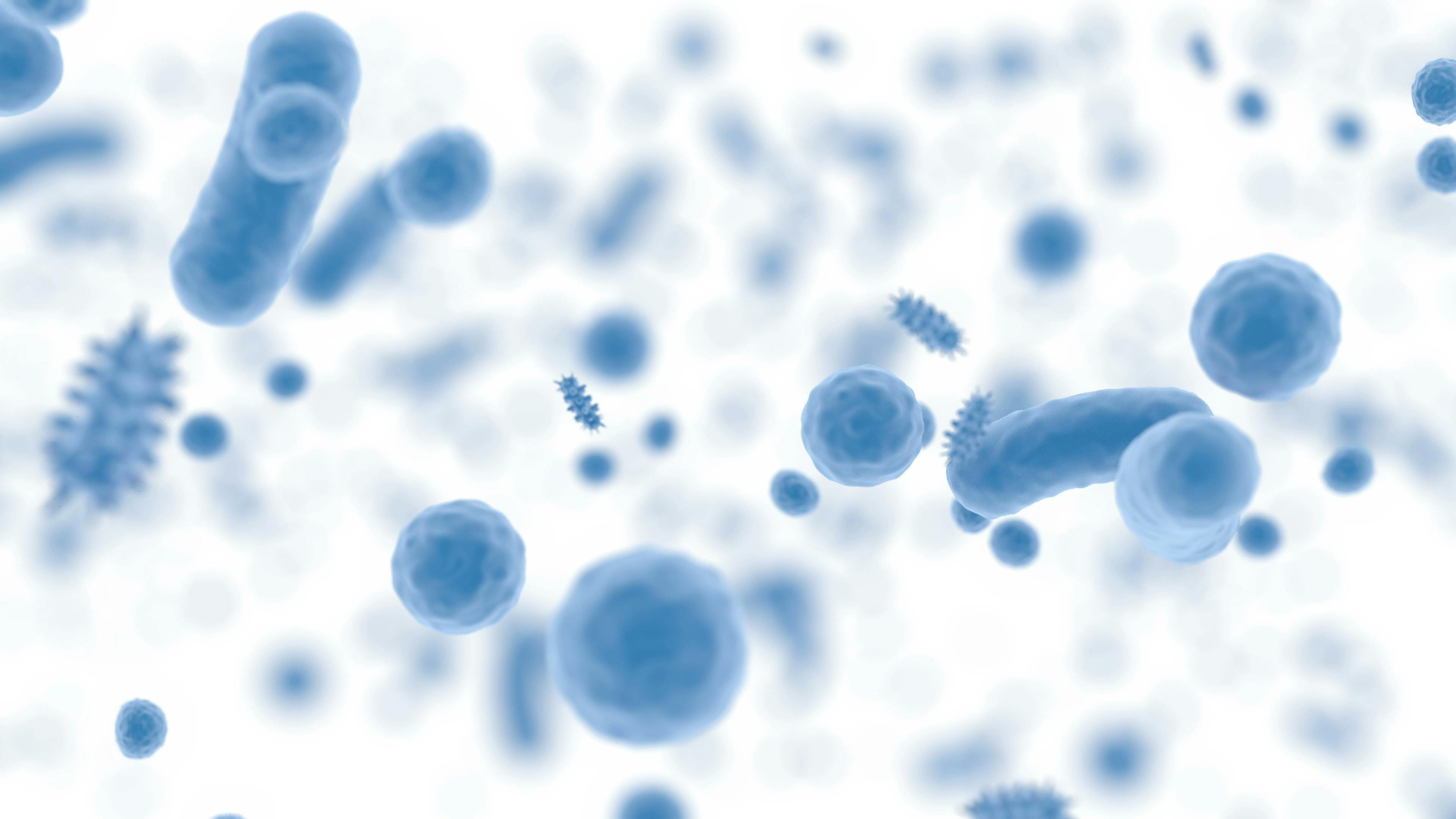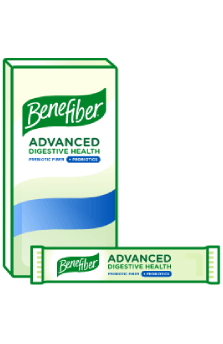What is the Microbiome?

When you hear the word bacteria, your might immediately think of bad bacteria—and not the good organisms that help keep you healthy. It’s surprising, but your body actually contains a large number of beneficial bacteria important to maintaining your overall health.
The term microbiome describes the community of microorganisms, or bacteria, that live in your body, including within the gut. The human body has about 40 trillion bacteria and other microbes in its system, many of which support and maintain our health.1,2 Factors like diet and lifestyle changes can disturb a healthy microbiome balance.1,2 By maintaining the balance of your microbiome through diet, supplements, and other factors, you’ll be able to support your gut health.
How Does the Microbiome Affect Your Health?
As soon as you are born, your body’s microbiome starts to affect your body and health. Each person is born with a unique network of microbiota originally determined by their DNA, but new microorganisms change our microbiome as we age.2 In very early life, people are exposed to microorganisms during birth and through breast milk.2
Later in life, diet and environmental factors can change your microbiome.2 Although changes to the microbiome can positively impact your health, some disruptions aren’t beneficial.1,2
Your microbiota works along with the body’s immune system and breaks down potentially toxic food compounds or contaminated water or food.2 It is also key to synthesizing certain vitamins and amino acids important for your health, like B vitamins and vitamin K. Healthy gut bacteria may even help with weight management.3
Does Diet Affect the Microbiome?
Factors like genetics, environment, medication use, and diet all contribute to the types of microbiota living within your gut.2 Although some factors cannot be controlled, a healthy diet helps support a healthy microbiome.2,3
Eating a high-fiber diet can affect the type and amount of microbiota in your gut.2 Here’s how: Microbiota found in the colon have enzymes that break down and ferment a specific kind of dietary fiber to produce substances called short-chain fatty acids (SCFA).
Among other benefits, a higher presence of these acids lowers the pH of your colon, creating conditions where certain types of microbiota can thrive---and others can’t.2 A lower pH limits the growth of bacteria such as Clostridioides difficile.2 An overabundance of C. diff. can cause occasional diarrhea. Recent research on the role of SCFA in the maintenance of gut health indicates they may be a key mediator of the beneficial effects of the gut microbiome.2,4
A diet rich in indigestible carbohydrates and those prebiotic, soluble dietary fibers provides the fuel for the colon microbiota to produce those higher levels of SCFA. These carbohydrates that feed these beneficial bacteria are sometimes referred to prebiotics. Garlic, onions, leeks, asparagus, and bananas are food that naturally contains prebiotics. Incorporating these prebiotic foods into your diet may support a healthful balance of your microbiome.
In addition to feeding the good bacteria that already exist in your gut, you might also promote a healthy gut microbiome by ingesting foods that contain beneficial live microbiota. These foods are called probiotic. Fermented foods like yogurt, pickled vegetables, and sauerkraut are prime examples.
How to Maintain a Healthy Microbiome
In addition to foods containing prebiotics and probiotics to help support your gut microbiome, prebiotic supplements may also help maintain healthy microbiota. Benefiber Original powder contains prebiotics that nourish the good gut bacteria within your microbiome.* For on-the-go prebiotic fiber and probiotics, Benefiber Prebiotic Fiber + Probiotics come in convenient gummy or powder stick and work to help optimize your gut health.*
Although scientists are still in the early stages of understanding the exact effects of the microbiome on our health, supporting a healthy microbiome can help avoid disturbing the balance of microbiota within your body.2 The living and dynamic environment of your microbiome changes often based on factors like diet, exercise, and your environment and can impact your health.2 Visit the Benefiber website to learn more about gut health, including articles on the role of gut flora and the benefits of prebiotic fiber.
*These statements have not been evaluated by the Food and Drug Administration. These products are not intended to diagnose, treat, cure or prevent any disease.
Show References
- Microbiome. https://www.genome.gov/genetics-glossary/Microbiome. Accessed 4/22/2022.
- The Microbiome. https://www.hsph.harvard.edu/nutritionsource/microbiome/. Accessed 4/22/2022.
- What is a microbiome? https://news.uchicago.edu/explainer/how-microbiome-affects-human-health-explained#gutmicrobiome. Accessed 4/22/2022.
- Short chain fatty acids in human gut and metabolic health. https://pubmed.ncbi.nlm.nih.gov/32865024/. Accessed 4/22/2022.
Nourish the Goodness Inside
Benefiber is an easy way to add fiber to your life.
$1.50 OFF BENEFIBER







